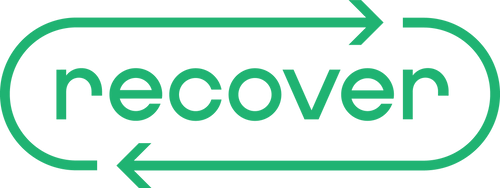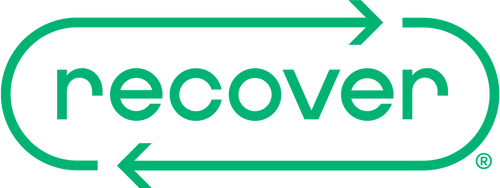The traceability of our supply chain and environmental impact assessment conducted and verified by BCome show a greater volume of impact savings compared to the industry standard.
Calculate your impact!
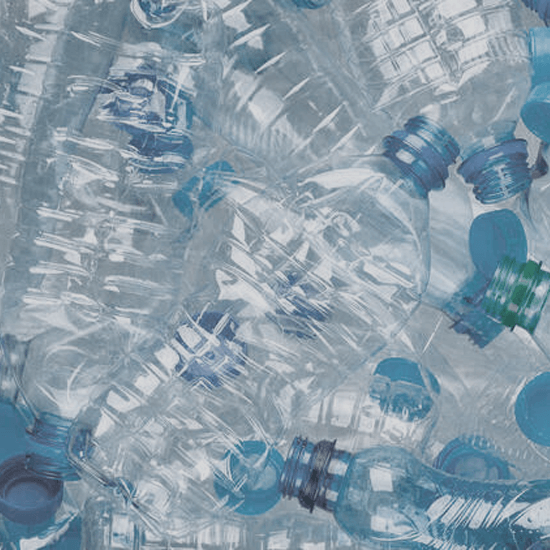
Diverting plastic waste from the landfill can help prevent the widespread accumulation of synthetic plastic in the environment and landfills.

Avoiding excess greenhouse gas emissions can help reduce the rate of climate change by minimizing the concentration of these gases in the atmosphere.
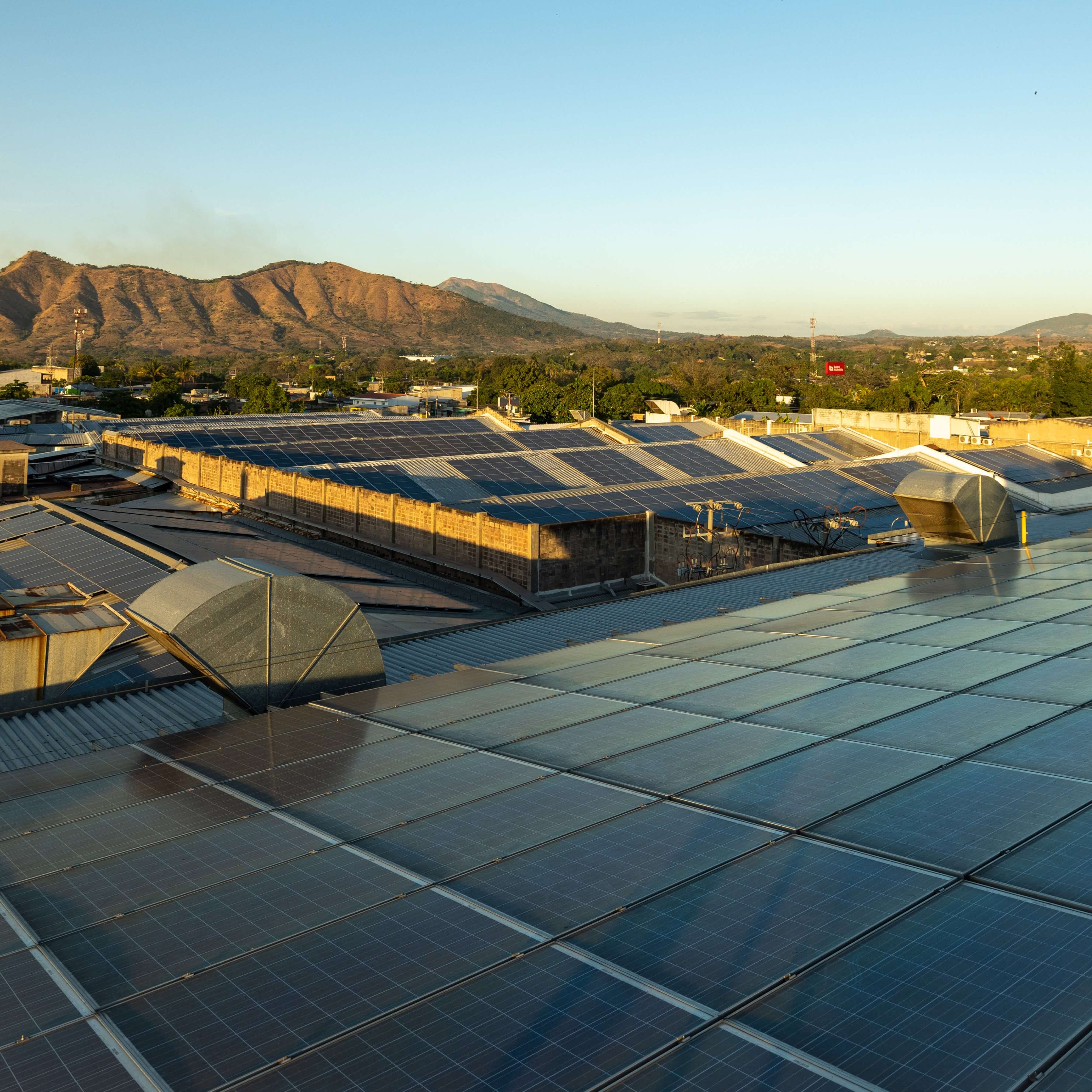
Consuming less fossil fuel-based energy can help mitigate the depletion of non-renewable resources, including oil, natural gas, and coal.

Reducing water consumption can help to lessen the impact of water scarcity, ecosystem degradation, and water quality issues.
The values from our impact calculator are third-party verified. The estimates are based on the average sustainability savings of our products and are not intended for use in official sustainability reporting. If you would like a personalized LCA for your wholesale order, please contact marketing@recoverbrands.com.

Our 2024 Impact Report
Since 2010, we've been committed to transparency, sustainability, and making a real difference. We're thrilled to release our comprehensive 2024 Impact Report, detailing steps we've taken to create positive change across our business and beyond.
EC100 - Eco Short Sleeve T-Shirt
Compared to an equivalent standard item defined by BCome
OG100 - Organic Short Sleeve T-Shirt
Compared to an equivalent standard item defined by BCome
RS100 - Classic Short Sleeve T-Shirt
Compared to an equivalent standard item defined by BCome
RC1093 - Fleece Pullover Hoodie
Compared to an equivalent standard item defined by BCome
RD1000 - Sport Short Sleeve T-Shirt
Compared to an equivalent standard item defined by BCome
SE1000 - Sport Elite Short Sleeve T-Shirt
Compared to an equivalent standard item defined by BCome
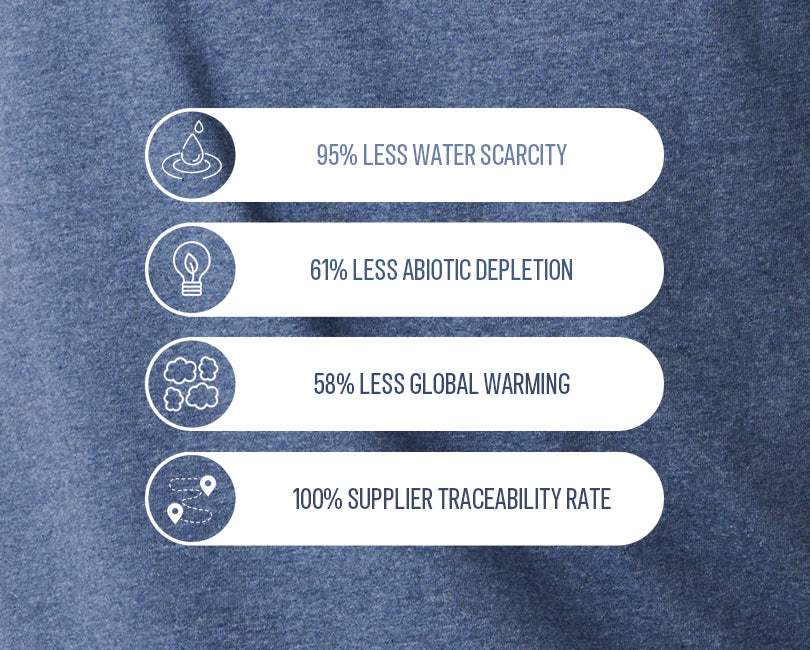
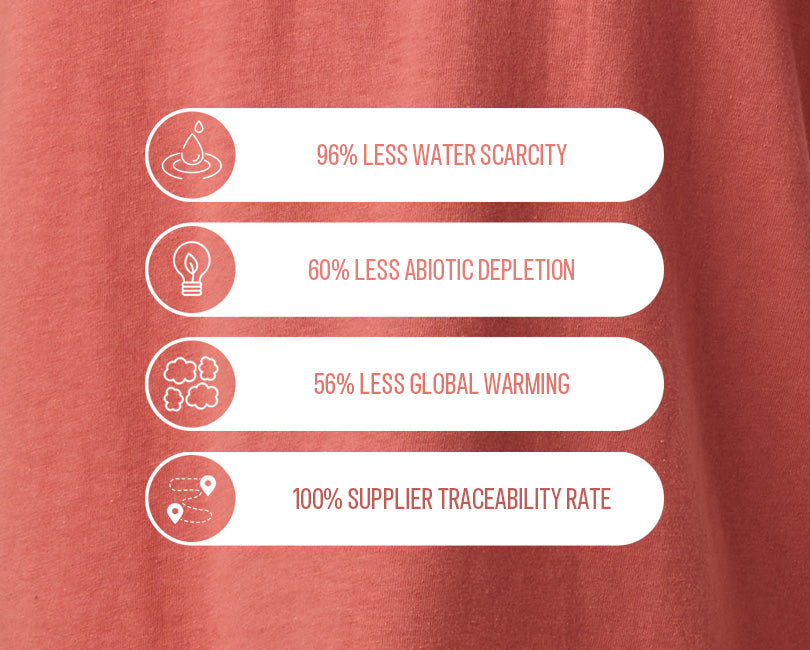
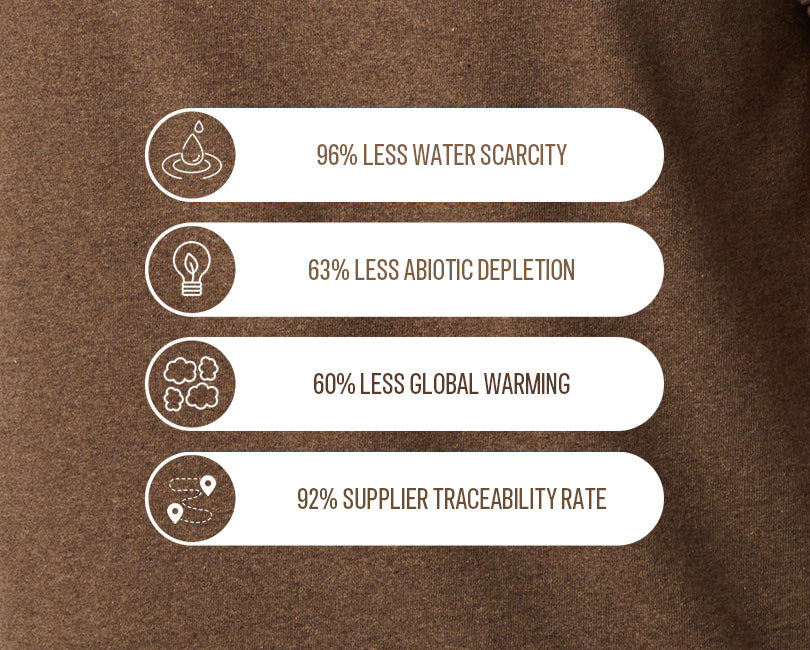
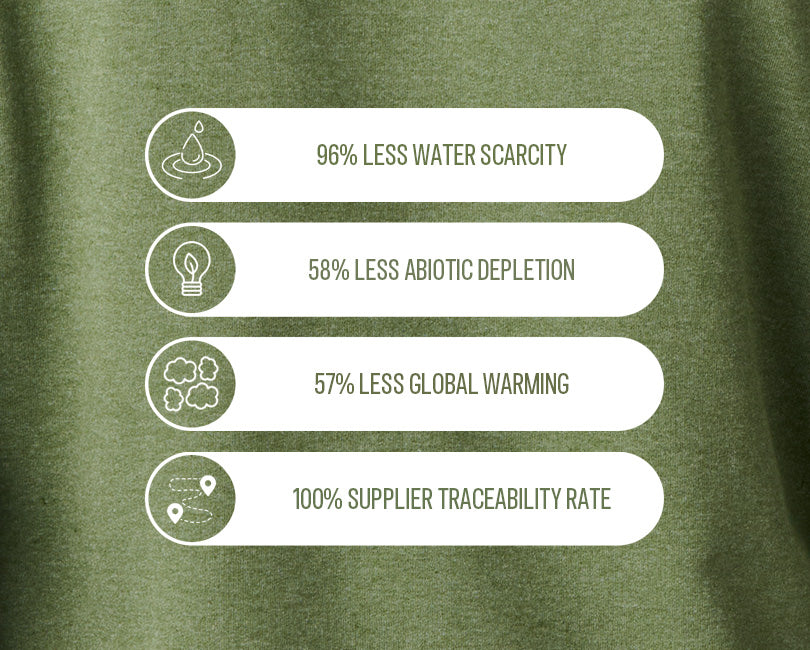
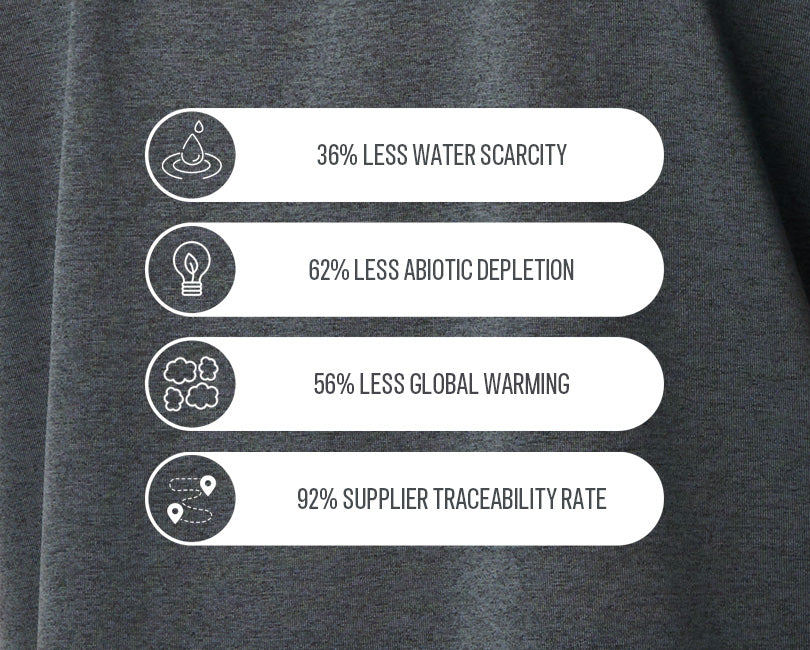
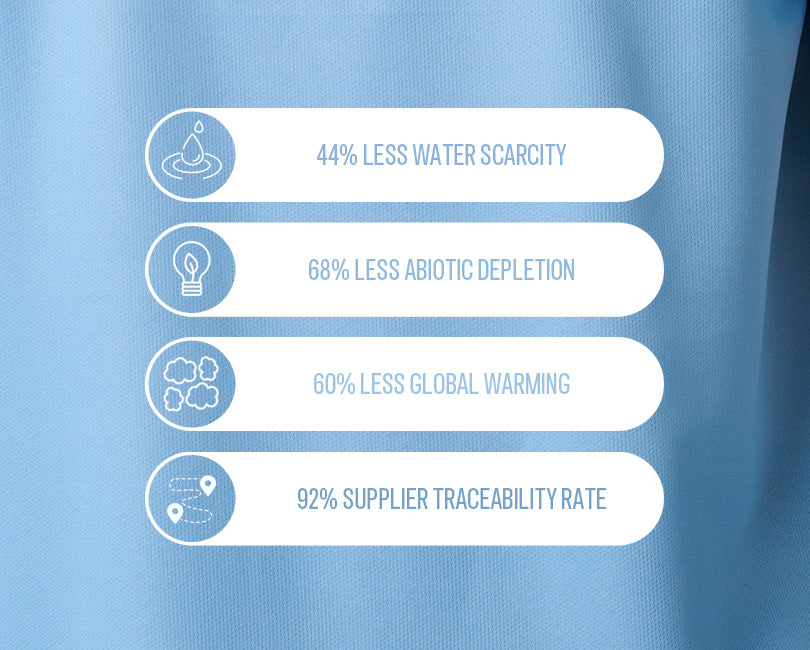
Our Impact Categories
-
Water scarcity is a relative concept based on the fact that water is a finite resource. The impact of water consumption increases depending on geographical area and type of water used in the value chain.
-
Abiotic depletion refers to the depletion of nonliving resources including oil, natural gas, and coal used as energy carriers. It corresponds to the use of natural resources that are not renewable.
-
The greenhouse effect of heat-trapping pollutants causes global warming. It is the absorption of sunlight and solar radiation by greenhouse gases such as carbon dioxide, methane, nitrous oxide, and water vapor. Instead of escaping into space, the heat is kept in the earth's atmosphere for years to centuries.
-
Percentage of known raw material, material, and article suppliers.
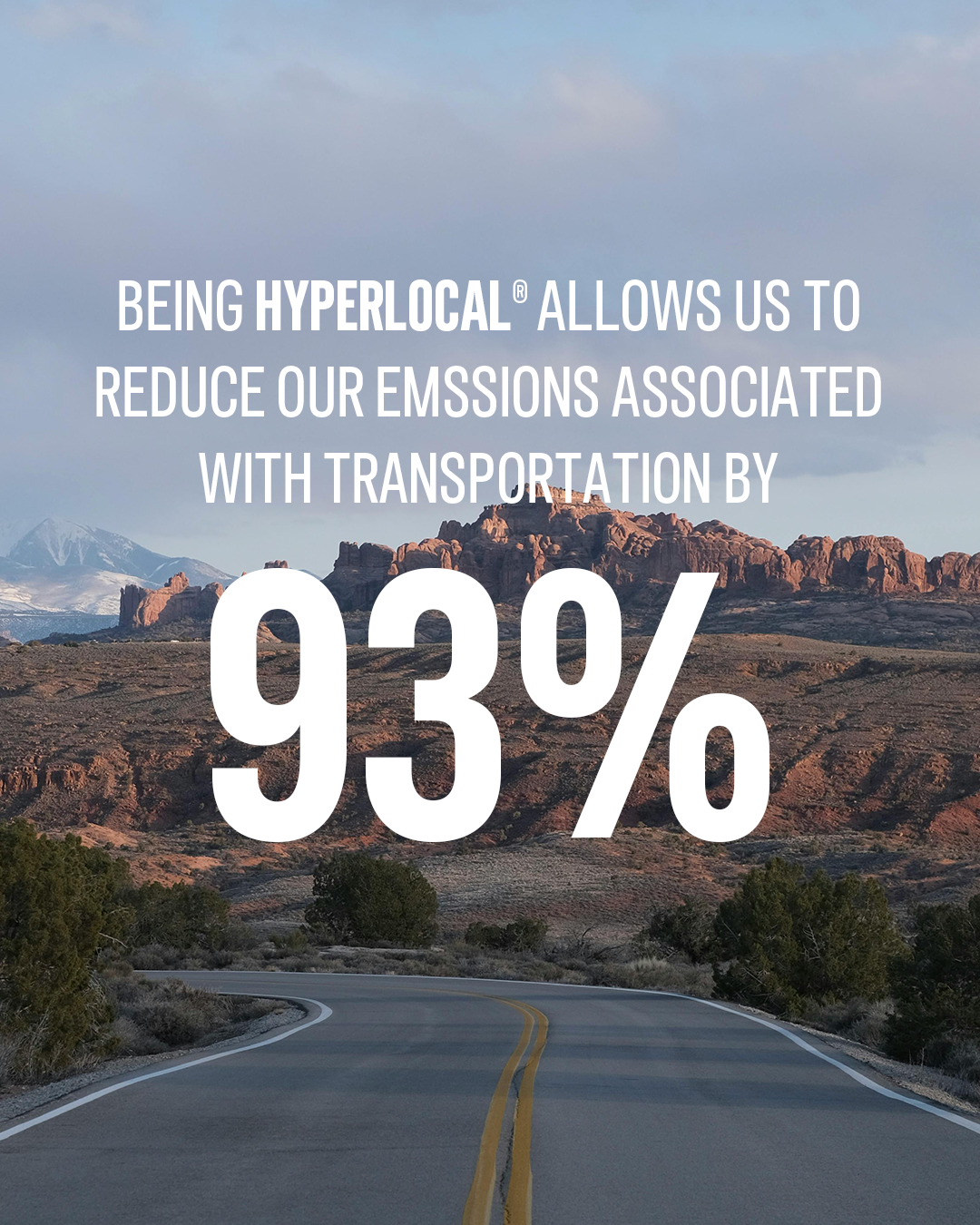
The emissions associated with shipping all materials and products across our supply chain from mile zero to our order fulfillment center are 93% less than the industry standard equivalent.*
Being HyperLocal® means shorter distances that our materials and products have to travel which directly reduces our emissions.
*Data is from an average of 6 Recover core product LCAs verified by BCome compared to their industry standard equivalents
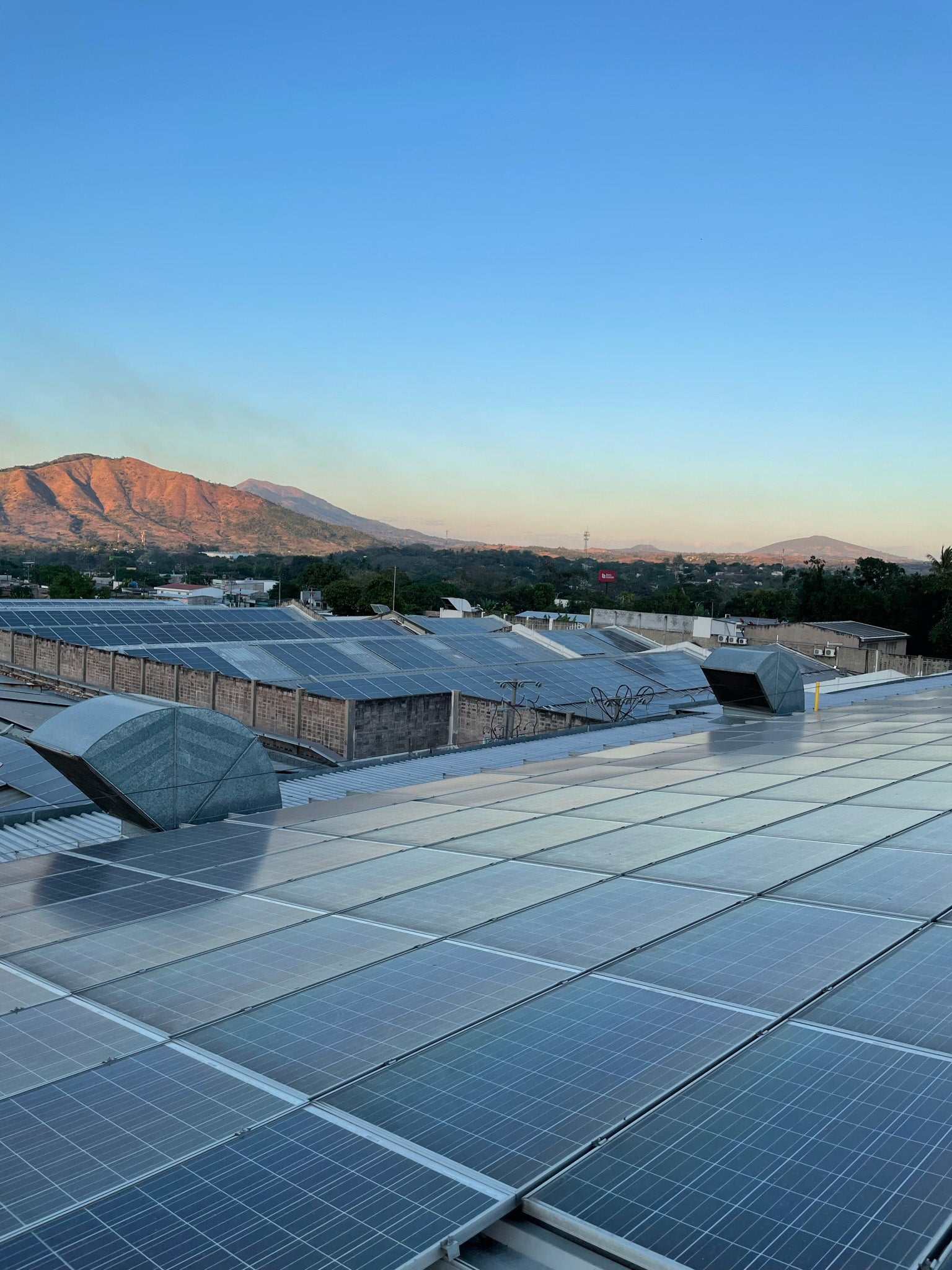
Sustainable Manufacturing in El Salvador
With recent investments in solar energy generation and water recycling techniques, our El Salvador supply chain continues to lead in innovation for responsible manufacturing.
37%
of the energy used in our El Salvador supply chain is on-site generated solar power.
75%
of the energy used in our El Salvador supply chain comes from renewable sources.
Up to 60%
of water used for production in our El Salvador supply chain is recycled.
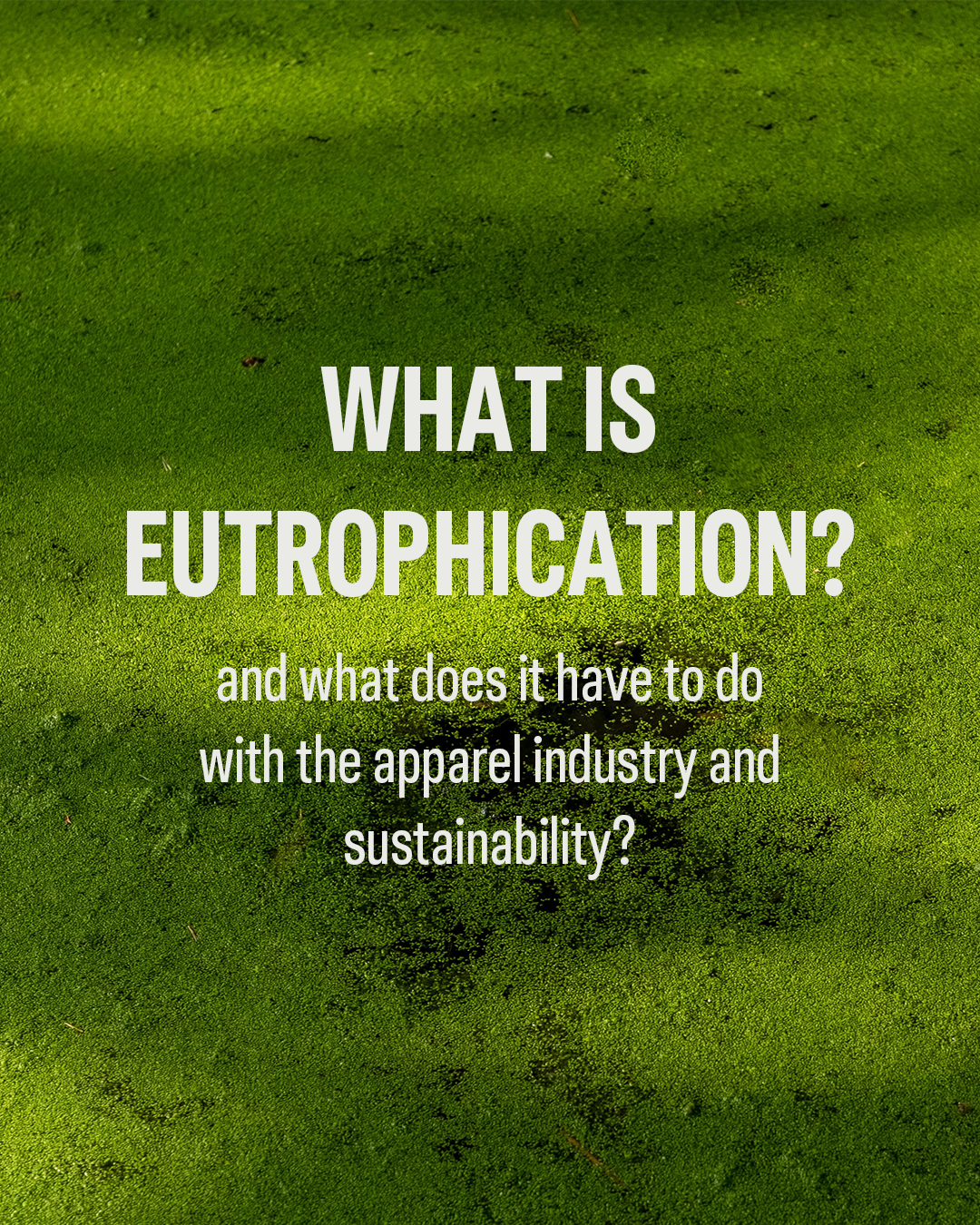
Eutrophication is the build up of phosphates and nitrates in an ecosystem caused by the use of pesticides, fertilizers, detergents, and other chemicals. The increase of these substances in water bodies leads to rapid algae growth, altering the ecosystem and reducing its biodiversity. This process eventually leads to oxygen depletion and ultimately, dead zones and fish kills.
Compared to the industry standard, Recover products contribute to 72% less eutrophication. We achieve this by utilizing 100% USDA-certified organic cotton for our Organic Collection, recycling up to 60% of water used for production in our El Salvador supply chain, and avoiding the use of dyes in our Eco, Classic & Fleece Collections.
*Data is from an average of 6 Recover core product LCAs verified by BCome compared to their industry standard equivalents

Certified Materials
We are committed to using certified and sustainable materials in all our products to ensure a positive environmental impact and promote responsible production.
↓
We can help you make an impact through sustainable apparel and storytelling!

Recover Wholesale

Men's

Women's

